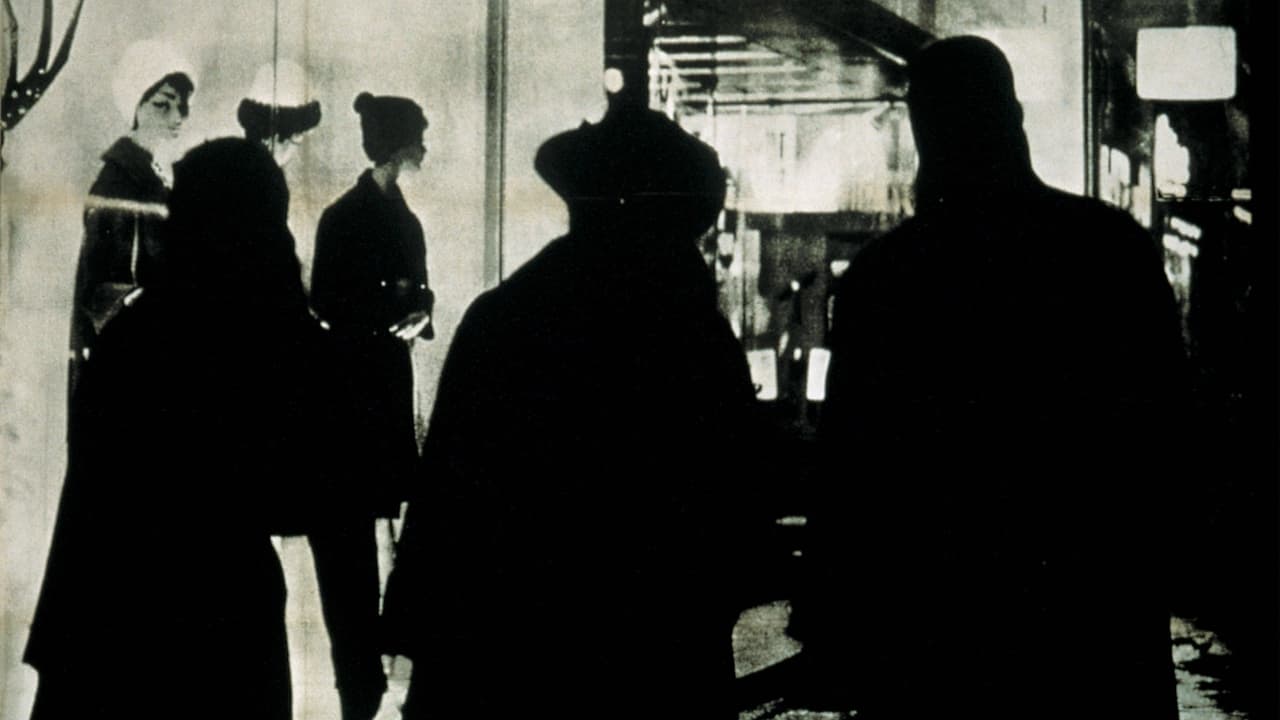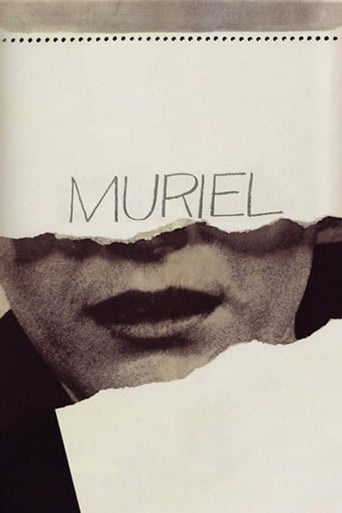

It's about 50 years since I first saw Muriel; in those days the wounds of the Algerian war were still fresh: bodies of Algerian immigrants were found floating in rivers, Sartre's apartment was fire-bombed because he'd supported Algerian independence and so on. Resnais had enough reason to make a film about those troubled days. The trouble with the film has to do with the uneasy juxtaposition of domestic drama (the unhappy love of Hélène and Alphonse) with the ordeal of Bernard and Robert in Algeria, and the dead girl over whom Bernard obsesses. The love story is so much more interesting than the political theme that we are left frustrated with the necessity of ignoring the latter to the benefit of the former.Delphine Seyrig gives a wonderful performance as Hélène; she's always in movement, trying to calm Bernard down, trying to coax some emotion out of the stony Alphonse, on the phone with Claudie cadging some money to gamble at the casino (she's not good about repaying debts). Jean Champion shows up in the second half as Ernest, Alphonse's brother-in-law, trying to bring him back to a sense of his duties to his family. He sings that wonderful song at the lunch party, then launches into an angry tirade about Alphonse's dereliction of duty. It's a superb performance. Nita Klein as Françoise is appropriately prickly, analyzing her options as she sees Alphonse sliding away from her. Claude Sainval is very oily as de Smoke, a man who can't stop thinking about the money he's lost on a derelict building: ''can't even get the doorknobs from it''
... View MoreFrench avant-garde and former French New Wave director Alain Resnais' third feature film which succeeded his highly acclaimed first feature film "Hiroshima Mon Amour" (1959) and "Last Year at Marienbad" (1961), was written for the screen by French poet Jean Cayrol (1911-2005) and tells the story about a middle-aged antique dealer named Hèlène Aughain who lives in her inner-city apartment in the provincial port-town of Boulogne-sur-Mer with her restless and secretive stepson Bernard who is haunted by a woman from his past named Muriel. Their lives changes when Hèlène is visited by her old lover Alphonse Noyard who has brought along a young woman named Francoise.Masterfully directed by one of the greatest directors in cinema history, this character-driven and dialog-driven mystery, a metaphysical drama with rigorously composed visuals and sounds, about memories of love and war, where the past and the present is intertwined and where time dissolves, is a detailed and realistic portrayal of everyday life in a urban French town, a character in itself, where things much like the central characters are incomplete. Like Jean-Luc Godard's "Le Petit Soldat" (1960), Alain Resnais' film pointedly deals with themes of the Algerian War of Independence which had ended the year before "Muriel, or the Time of a Return" was released.The efficient use of cinematic devices and the creatively fragmented narrative is pivotal in this stringently structured and acutely written story, which is an enchantingly atmospheric and cryptic chamber piece with memorable acting performances. Like some of the greatest films made by directors Alfred Hitchcock (1899-1980) and Luis Buñuel (1900-1983), this symbolic, metaphorical and distinctly stylistic early nineteen sixties French-Italian co-production gradually decodes the consciousness of it's characters. A truly engaging and elusive depiction of the human psyche which was awarded with the Volpi Cup for Best Actress - Delphine Seyrig (1932-1990) at the 24th Venice Film Festival in 1963.
... View MoreHelene, a widow living in Boulogne, France, makes a living out of selling antique furniture and objects which she uses in her own apartment. The different pieces are part of the decor. She lives with her step-son, Bernard, a recently arrival from the Algerian front. Bernard is obsessed with Muriel, a young woman that was tortured by his army unit. He is now writing his recollection of her, as well as shooting documentary style films that deal with his recent past.As the story begins, Helene had invited an old lover, Alphonse for a visit. Perhaps looking to relive the days of her first romance, she has asked him to come spend some time with her. To her surprise, Alphonse arrives with a beautiful young woman, Francoise, who he passes as his niece. It is clear from the start they know one another in a different fashion. Taking them in as her guests is a decision that backfires on Helene.Helene has a weakness for gambling at the local casino. She loses most of the time. She seems to be pressed for money. Her good friend, Roland De Smoke, appears to be a well to do man. She gets money from him, as well as from another friend, Claudie, who holds the mortgage to her apartment, probably to guarantee getting money out of what could be a possible bankrupt Helene.Alphonse, the visitor, is an enigmatic figure. He walks all over Boulogne making friends with the locals. In fact, Alphonse shows he is hiding from his own painful past. He too, has been living in Algeria managing a sort of club which he is too vague to describe. Helene, who has thought seeing her old love would lead to some change, ends up a lonely figure because nothing turns the way she had hoped."Muriel" was Alain Resnais' third full length feature. His popularity among the art house crowd was always strong, yet this film was not seen by a wider audience, as probably the producers wanted it to be. The problem might stem from the way Mr. Resnais cut the film which might lose the viewer if not paying close attention at what is happening on the screen. The scenario was written by Jean Cayrol. The film has a lot of symbolism that will elude a casual viewing. Antique furniture that equates with Helene's loneliness, a town devastated during the war, the memories of the recent Algerian conflict are part of the message Mr. Resanais wanted to project.In Delphine Seyrig, the director found a muse, no doubt. The actress appeared in the first three films of Alain Resnais. She was a serious actress who collaborated with the likes of Joseph Losey, Luis Bunuel, Marguerite Duras, among others. Her Helene is about the best thing in the film. She gave a detailed performance, giving life to a troubled soul. Jean-Pierre Kerin appears as Alphonse. Jean-Baptiste Thierree is Bernard. Nita Klein, Claude Sainval are seen in the supporting cast.
... View Morenot for the casual DVD renter. Muriel is *not* entertainment but a film that demands that we endure its theatricality and embalmed atmosphere in order to reflect, along with Resnais, about various kinds of unbearable pasts, personal and national. The city of Boulogne is itself a character in Muriel, rebuilt and unrecognizable after the bombings of World War II...Helene (Delphine Seyrig) is an antique dealer whose home is her gallery--so she lives in a jumble of distant French pasts all the better to avoid her own. The "home movie" sequence is one of the few in French cinema of the 60s where the Algerian War is figured--but here, we see happy soldiers hanging out, images to send home (and to French TV), while the voice-over (Helene's stepson) recounts the rape and torture of the Algerian woman named in the title. Daring, in light of French censorship of any text that compromised state security during the "Algerian situation." Muriel will leave you with more questions than resolutions.
... View More